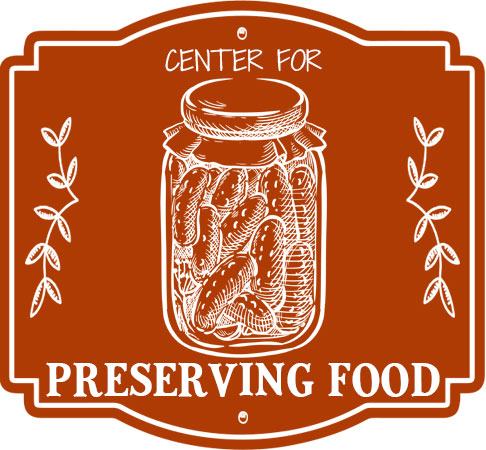Quick and easy homemade fridge pickles
Making homemade refrigerator pickles does not require any canning equipment needed. It’s just 3 steps using a handful of ingredients: boil vinegar solution, pour over cucumbers, and wait a few days for crisp pickles!
Unlike store-bought pickles, these scrumptious, crunchy, homemade pickles are low in sodium.
Enjoy these tangy pickles as a crisp afternoon snack or to top off grilled burgers or sandwiches.
Note: These pickles are mean for casual snacking, not long-term storage which would require a boiling-water bath process. See our full Pickling Guide.
Refrigerator Pickles Recipe
Ingredients:
3-1/2 cups water
1-1/4 cup white vinegar (or apple cider vinegar)
1 tablespoon canning or kosher salt (NOT table salt)
1 tablespoon granulated sugar
4 cups pickling cucumbers, unpeeled, sliced into 1/4-inch thick rounds
2 heads fresh dill
Optional: 2 cloves garlic (whole)
Instructions:
- Boil the water, vinegar, sugar, and salt in a saucepan. Cook for one minute. Cool.
- Put cucumbers, garlic, and dill in a plastic or glass container (not metal!!). You simply can use a medium bowl—or, a couple of jars for gifts.
- Cover with the cooled liquid. Put in the refrigerator. Let the vegetables pickle in the brine for 3 to 4 days before eating for the best taste.
Refrigerator pickles last in the fridge for up to one month.
You can use the pickling liquid for other veggies, too, from beets to carrots.

Introduction to Preserving
Freezing
Making Quick Pickles
Making Quick Jams: Refrigerator or Freezer Jam
Water-Bath Canning
How to Can Tomatoes
How to Can Pickles
How to Can Jam and Jelly
Pressure Canning
Drying
Salting and Brining
why do use sugar for dill pickles? none of the store or farmers market dill pickles have sugar.
Hi, Steve. A small amount of sugar rounds out the flavor of the dill pickles. It should not be a large amount, hence the reason this recipe only calls for 1 tablespoon.
After slicing the cucumbers, i place them in a salt bath for approx. an hour. While waiting, I make the brine. After the hour, rinse the cucumbers and pour on the hot brine. Let sit another hour at room temperature, then scoop into your containers and refrigerate. These come out crunchy every time!
Is it ok too use peeled cucumbers?
We recommend using “pickling” cucumbers which are small, rounded, and have bumpy skins; they should not be peeled if you want them to be crunchy with a good snap.
We don’t recommending regular garden cucumbers that have thick skin and lots of seeds. These are the ones sold waxed in the store. If you did want to use them, they do have to be peeled. Also, stay away from English cucumbers (the long, seedless ones) which are not a good option for pickles.
Can I use small but whole unpeeled pickles or not?
I have not had a lot of luck making dill pickles but this recipe turned out great! Small batches are good for us too. I tweaked the recipe a bit (i.e., I use dried dill, extra garlic & cut the cloves in half). Next time, I'm going to spice it up a bit! Thanks for this recipe!
I grew what I was told were mini watermelons buy are ACTUALLY cucmelons. I watched a video and the guy made sweet pickles of them...so can I use your recipe to make Dill?
NEVER!! use plastic containers unless they are BPA free!! The best way to keep your pickles is canning jars! They take up less space and are the best way to preserve anything!!!
You do not need to keep fridge pickles in canning jars. Plastic and glass bowls or containers are perfectly fine for anyone trying out fridge pickling, which does not involve processing, especially if specialized canning jars are not available, accessible, or just too expensive. Indeed, use food-grade plastic bowls from the kitchen, not plastic containers used for outdoors or non-food items. However, do not use aluminum, copper, brass, galvanized, or iron utensils or containers. These will react with the salt and acids during pickling. This can cause undesirable changes to the pickles. Other 1- to 3-gallon non-food-grade plastic containers may be used if lined inside with a clean food-grade plastic bag.
Please note that fridge pickles are not stored on the shelf. They MUST be stored in the refrigerator for safety. Source: National Center for Home Preservation.








